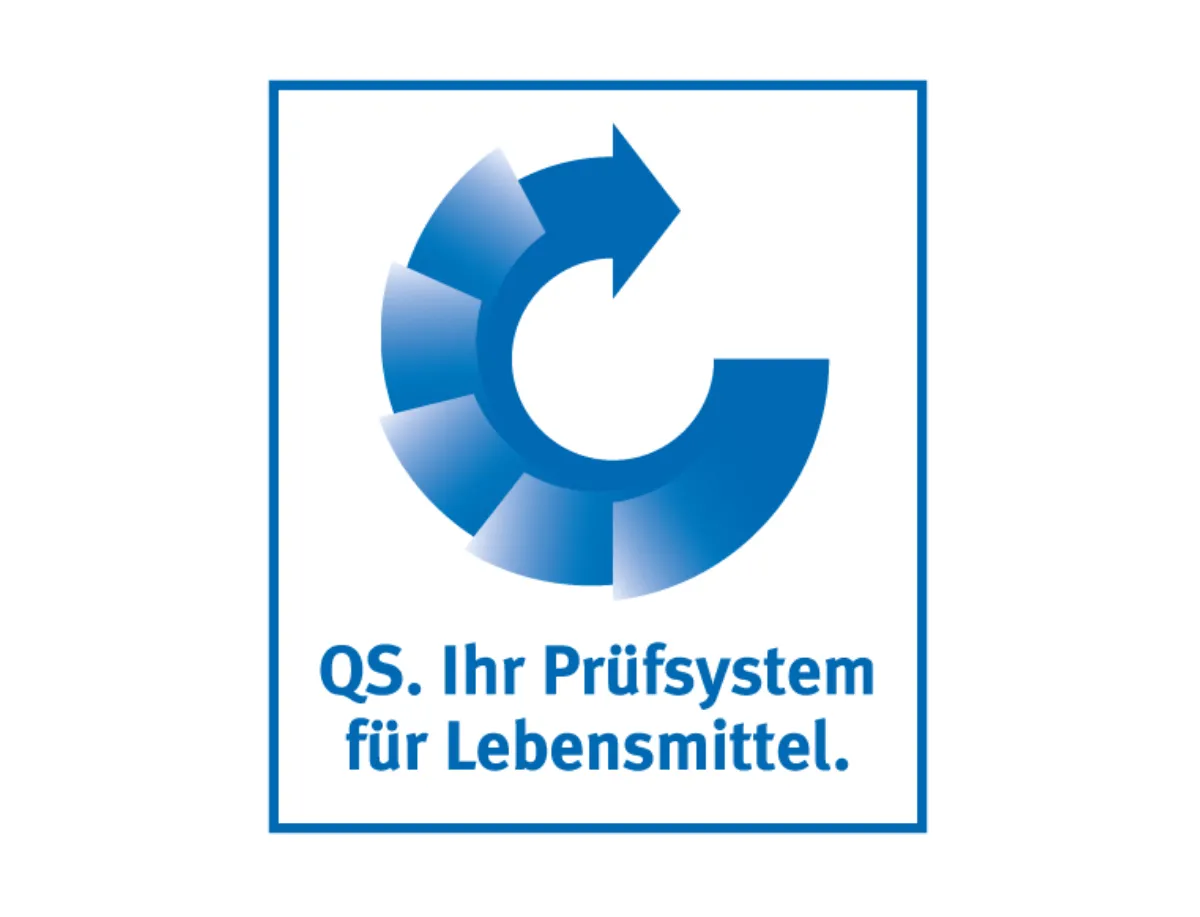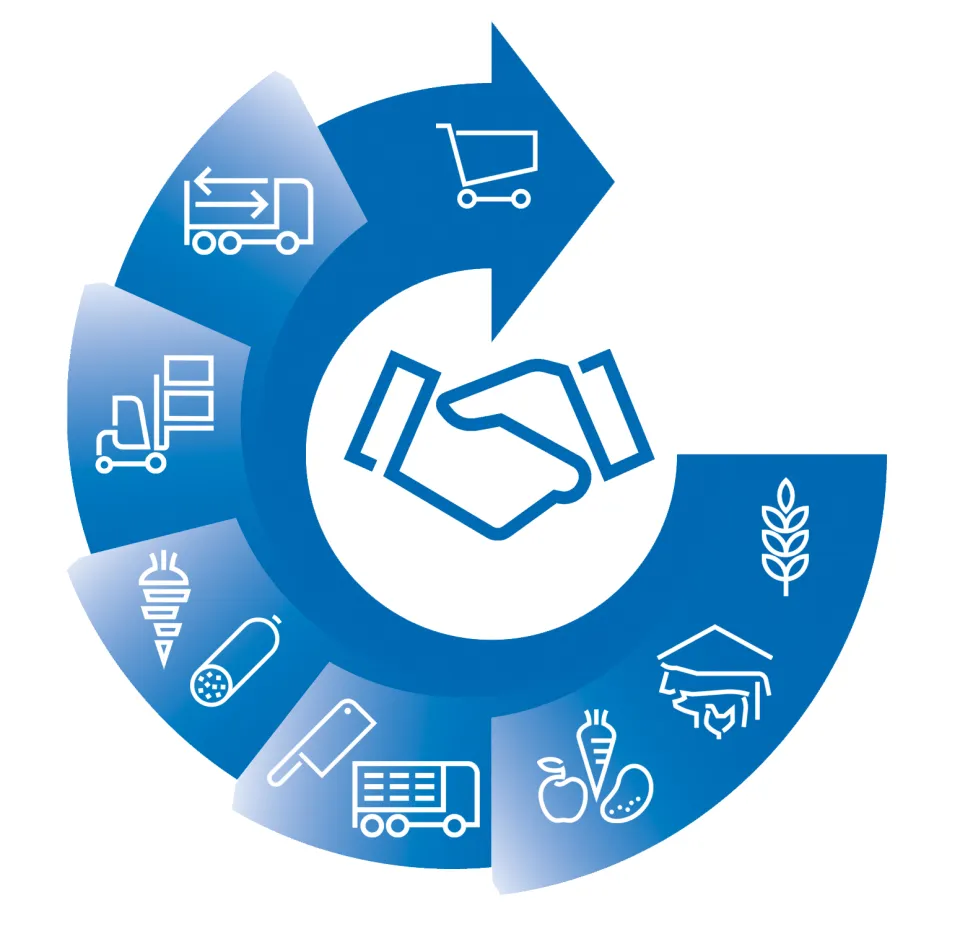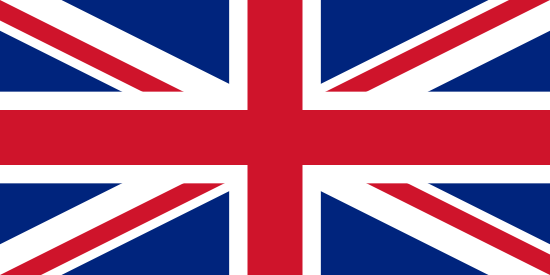
The QS certification mark: symbol for fresh food from good hands

QS certified products can be recognized by the QS certification mark. It signals the cross-stage compliance with the QS standards for the production and marketing of meat and meat products, fruit, vegetables and potatoes as well as assured processes and the quality of the products. Our aim is to confirm consumer confidence in fresh food every day.

QS. Quality scheme for food

The QS quality scheme for food is the leading standard for food safety in Germany and stands for quality assurance from farm to shop. Since 2001 we have been working together to ensure that all food safety standards are reliably implemented by all partners in the QS network.
Contact
Sonja Pfeifer
Senior Manager Contracts, Use of certification mark- Tel: +49 (0) 228 35068-136
- Fax: +49 (0) 228 35068-16136


